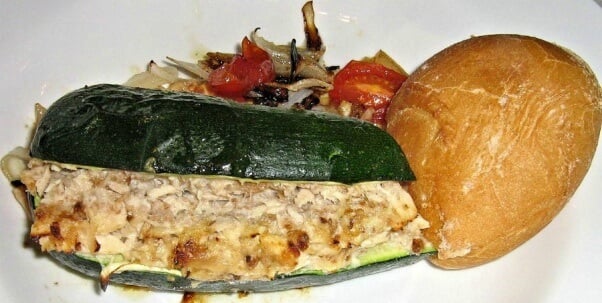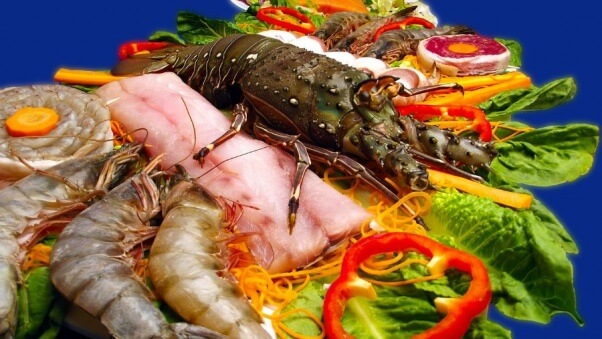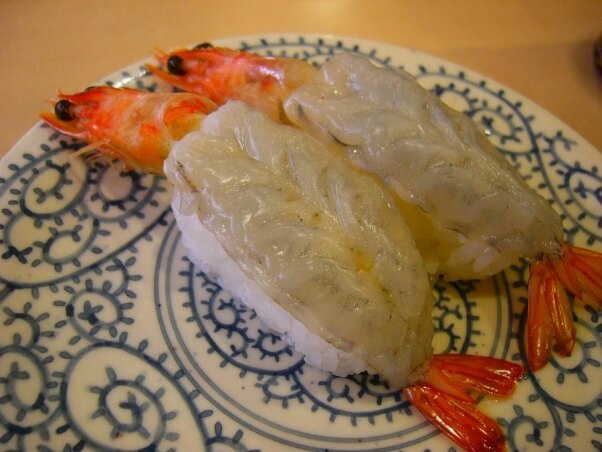The food industry isn’t always transparent. In February, several food manufacturers made headlines for putting cellulose, or wood pulp, in their supposedly “100 percent Parmesan” cheese products. And who can forget the British horse meat scandal of 2013, when horse meat was found in ready-made meals and beef burgers? (As if beef were less cruel and disgusting than horse meat—even “grass-fed beef,” which tries to masquerade as a health food, comes from cows who are drugged and raised in deplorable conditions before being slaughtered.)

“Seafood fraud” is seemingly more common than income-tax fraud. If you’ve ever eaten at a restaurant that serves seafood, you might not have gotten what you ordered. Here’s a list that will make you rethink your next restaurant order:
1. The menu is just plain wrong.
Tilapia and catfish are often passed off as grouper and red snapper.
2. Anal leakage, anyone?
DNA tests have shown that the “white tuna” at sushi restaurants may actually be endangered southern bluefin tuna or escolar, a fish that can cause diarrhea and anal leakage if eaten.
3. That’s not lobster …
DNA tests have also shown that the “lobster” sold at Red Lobster and other restaurants isn’t always lobster—sometimes, it’s langostino, whiting, or other sea animals who have less market value than lobster—but feel pain just the same. All sea animals belong in the ocean, not on someone’s plate.

4. Hot dog of the sea … yum!
“Crab meat” is often actually imitation crab—but unfortunately, it’s still from real animals. Usually, it’s the pulverized paste of white fish flesh, which is frozen, shaved into flakes, and mixed with starch, egg whites, flavoring, and food coloring. Imitation crab has been referred to as “the hot dog of the sea.”
5. Seared Additives
While scallops may actually be scallops, they’re often pumped full of water or additives so that restaurants can make more money off them.
6. Salmonella With a Side of Slavery
Shrimp should be sold with a warning label. They’re often caught using slave labor, and they’re rarely inspected by the U.S. Food and Drug Administration. When they are, authorities usually find filth, salmonella, and traces of banned veterinary drugs on them. Researchers tested imported ready-to-eat shrimp and found 162 kinds of bacteria that were resistant to 10 different antibiotics.

7. Hog Rectum
Hog rectum has reportedly been sold as “artificial calamari.” And you thought that eating deep-fried pieces of a dead, dismembered squid was gross enough already.
Don’t want to be fooled?
If you want to know exactly what you’re eating—and that it doesn’t come from an animal, any animal—choose plant-based foods, including fruits, vegetables, legumes, and whole grains. Search our hundreds of free recipes, and go vegan today!







